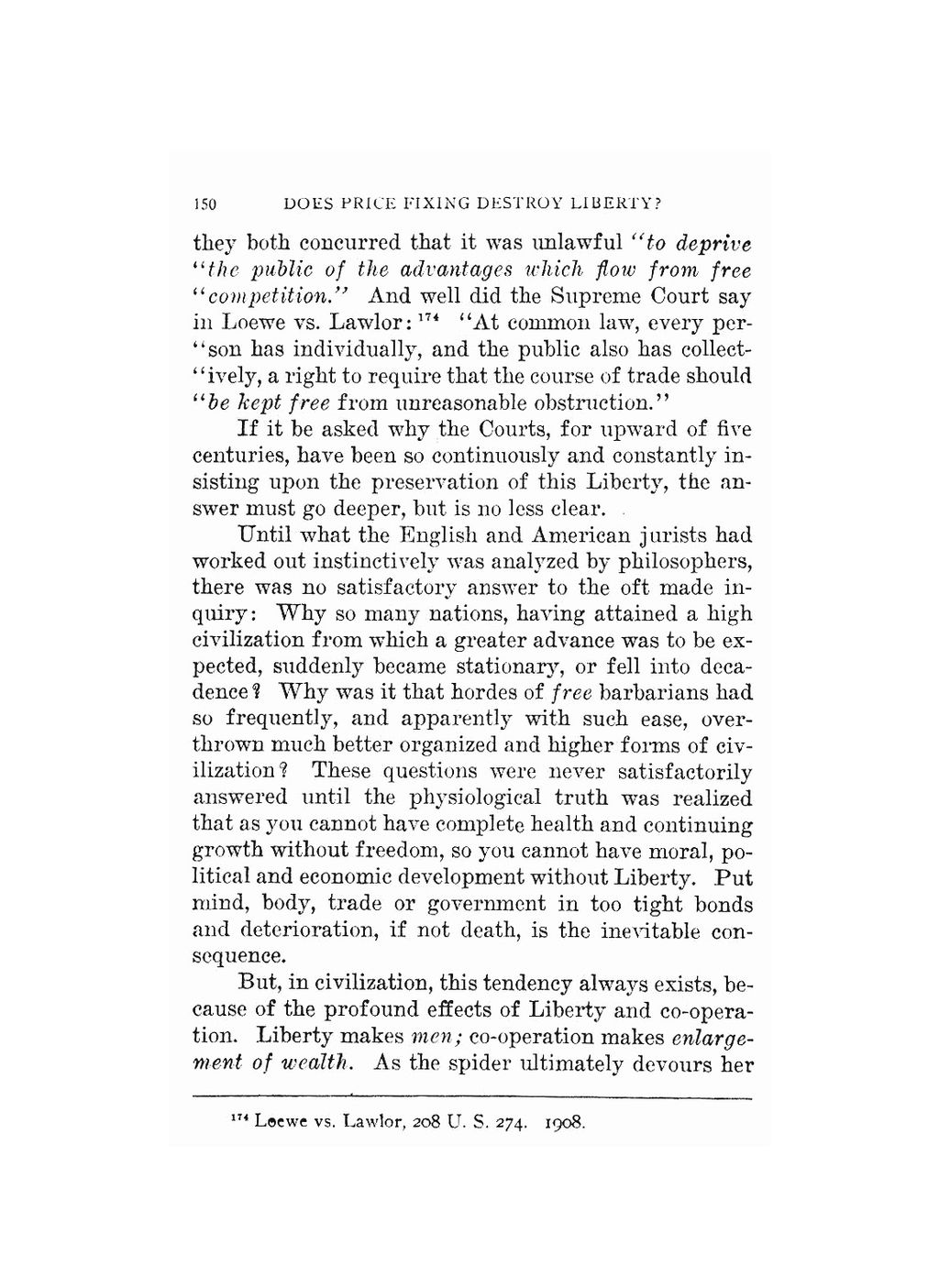they both concurred that it was unlawful "to deprive the public of the advantages which flow from free competition." And well did the Supreme Court say in Loewe vs. Lawlor:[1] "At common law, every person has individually, and the public also has collectively, a right to require that the course of trade should be kept free from unreasonable obstruction."
If it be asked why the Courts, for upward of five centuries, have been so continuously and constantly insisting upon the preservation of this Liberty, the answer must go deeper, but is no less clear.
Until what the English and American jurists had worked out instinctively was analyzed by philosophers, there was no satisfactory answer to the oft made inquiry: Why so many nations, having attained a high civilization from which a greater advance was to be expected, suddenly became stationary, or fell into decadence? Why was it that hordes of free barbarians had so frequently, and apparently with such ease, overthrown much better organized and higher forms of civilization? These questions were never satisfactorily answered until physiological truth was realized that as you cannot have complete health and continuing growth without freedom, so you cannot have moral, political and economic development without Liberty. Put mind, body, trade or government in too tight bonds and deterioration, if not death, is the inevitable consequence.
But, in civilization, this tendency always exists, because of the profound effects of Liberty and co-operation. Liberty makes men; co-operation makes enlargement of wealth. As the spider ultimately devours her
- ↑ Loewe vs. Lawlor, 208 U. S. 274. 1908.
